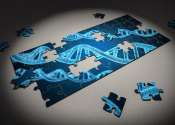Exercise shown to release protein reducing bowel cancer risk
Scientists at Newcastle University have shown that physical activity causes the cancer-fighting protein, interleukin-6 (IL-6), to be released into the bloodstream which helps repair the DNA of damaged cells.
Apr 7, 2022
0
40







